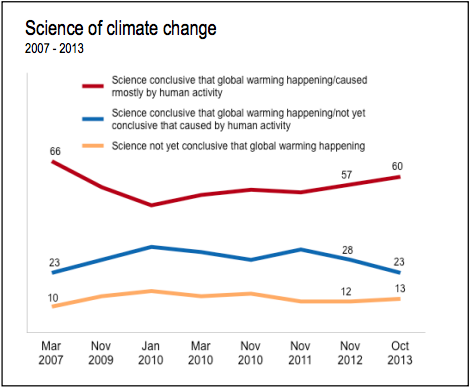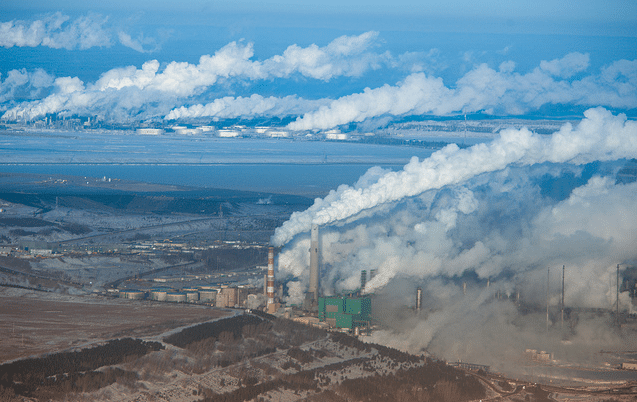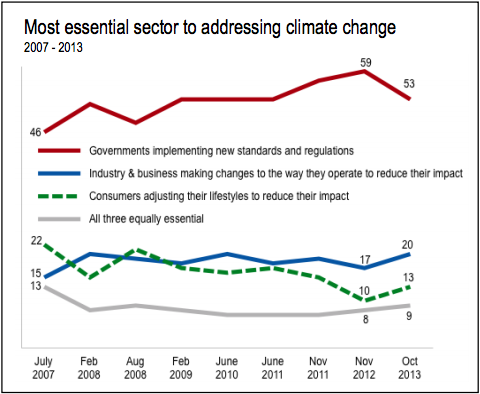Canadians are losing confidence that governments will take the lead in battling climate change, all the while becoming more certain that humans are behind global warming, according to a new poll by the Environics Institute, in partnership with the David Suzuki Foundation.
The belief that governments will take a lead role battling changes has dropped to 53 percent from 59 percent in a year, according to the poll, which comes as Prime Minister Stephen Harper’s Conservative government faces rising criticism at home and abroad for inaction concerning greenhouse gas emissions.
“Canadians have for decades looked to their governments for leadership on addressing climate change and other environmental problems,” Keith Neuman, executive director of Environics, said in a statement. “This latest survey shows a noticeable drop in the public’s confidence in governments’ capacity to play this role, and this may well be because citizens haven’t seen any evidence of leadership, especially at the federal level.”

Some 60 percent of Canadians say that climate change is real and caused by human activity, up marginally over the past year but part of an upward trend dating back to 2010. “Those not yet certain about the science remain divided on whether it is best to take action now or wait until we know more,” it said.
The relatively large poll of more than 2,000 adult Canadians was taken in early October, ahead of the new global climate talks underway in Poland this week and also before this month’s devastating cyclone in the Philippines. Cyclone Haiyan struck earlier this month, leaving massive destruction and death in its wake, while also raising concern that global warming was behind the world’s increasingly erratic weather.
The survey also comes as the Canadian government, which pulled out of the Kyoto Protocol in 2011, delays rules to rein in growing greenhouse gas emissions. The Harper government is strongly backing the development of the Alberta oilsands, considered one of the world’s most environmentally destructive fuel sources.
Environment Minister Leona Aglukkaq told the Globe and Mail that Canada remains committed to meeting its 2020 target for reducing greenhouse-gas emissions, promising the Conservative government will introduce long-delayed regulations to tackle emissions in the oil and gas sector.
“We are committed to achieving Canada’s targets, and our leadership and our actions and our investment demonstrate this,” she told the Globe and Mail before leaving Ottawa for the climate talks. Environment Canada said in a report last month that Canada’s emissions will total 734 megatons in 2020, or some 20 per cent higher than committed to at the Copenhagen climate summit in 2009.
The Suzuki foundation said the poll results show Canadians are looking for stronger action from the federal government. “The results underscore the need for the Canadian government to change its past practices and become a constructive global citizen at the UN climate change summit in Warsaw,” said Ian Bruce, science and policy manager at the Suzuki Foundation. “Canada’s job in Warsaw should be to collaborate with countries around the world to come up with an effective and binding international agreement to reduce global warming emissions.”
The Environics survey was based on telephone interviews with 2,003 Canadians between October 1 and 17, 2013 and is considered accurate within plus or minus 2.2 percentage points in 19 out of 20 samples.
Subscribe to our newsletter
Stay up to date with DeSmog news and alerts







